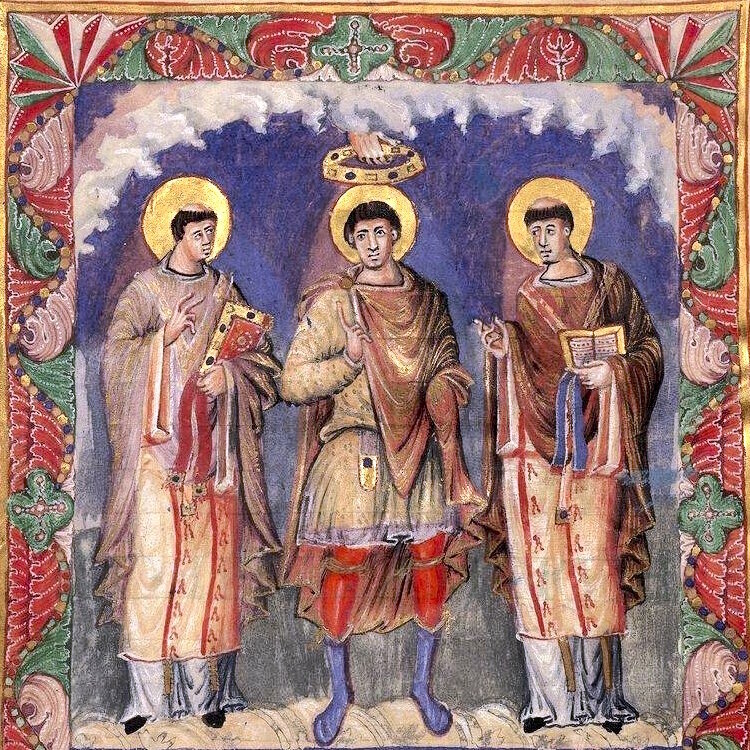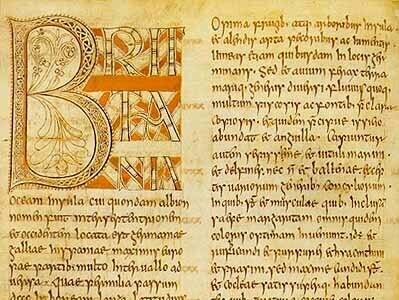 The Bishop's Household: Gender, Social Inequality and the Formation of Episcopal Authority and England and the Frankish World (c. 400–800)
The Bishop's Household: Gender, Social Inequality and the Formation of Episcopal Authority and England and the Frankish World (c. 400–800)
Stephan Bruhn
s.bruhn@ghil.ac.uk
The establishment of the so-called ‘Barbarian Kingdoms’ has always been defined as a transformation process that fundamentally changed western Europe. While scholarship has studied the political dimension of this transition comprehensively, research on its social implications shows a rather narrow focus on the redefinition of Romanness as elite cultural practice, thereby highlighting traditionalist or conservative responses to social change. However, this transformation also offered an opportunity to establish new hierarchies and expressions of social status. The clergy’s attempts to actively shape a changing society and redefine its own role in the process, for instance, have mostly been neglected. Yet records of councils and synods show new societal models that effectively ordered all aspects of communal life. These documents not only reflect bishops’ aspirations to discipline their flock socially along the lines of Christian ideals, but also their efforts to use status indicators from lay society to define and communicate the precedence of the clerical order in general, and its different offices in particular. The renegotiation of social order in the Post-Roman West thus crossed the boundaries between social and ecclesiastical hierarchies.
The project explores these reciprocal processes from a cultural perspective in a twofold way: by analysing how social status and hierarchies were perceived, defined, and legitimized, and by asking how these ideas of social order were meant to be implemented. Although mainly based on an elite discourse – ecclesiastical legislation – it thus draws on a broad variety of sources, including episcopal letters, charters, and secular law codes, to highlight the diverse frameworks in which this social theory was embedded.
In order to fully address the complexity of the outlined social transformation, the project uses theories and methods from different areas of historical research and from other disciplines. It combines recent approaches to social status, rank, and processes of institutionalization from the field of medieval studies with the concept of intersectionality in order to specifically address the dynamics and interdependency of social hierarchies both lay and ecclesiastical.
Geographically, a comparison is drawn between the developments in the Frankish World and Anglo-Saxon England because the differences, similarities, and contacts between the two regions bring the respective social transformations into sharper focus. Chronologically, the project covers the period from around 400 to 850, spanning from the first ‘barbarian’ conquests in Gallia to the first Viking invasions in England and the supposed peak of Frankish rule and culture. It thus deliberately examines the negotiation of hierarchies in a broad perspective in order to trace long-term developments.

Related publications
‘Ein Blick in die Ferne: Beobachtungen zu Bischöfen und ihren Diözesen im angelsächsischen England. Zugleich ein Beitrag zum Konflikt um den Episkopat Wilfrids von Northumbria’, in Andreas Bihrer and Stephan Bruhn (eds.) Jenseits des Königshofs: Bischöfe und ihre Diözesen im nachkarolingischen ostfränkisch-deutschen Reich (850–1100), Studien zur Germania Sacra Neue Folge 10 (Berlin/Boston, 2019), 423–63
Related Events and Presentations
‘“Zwei Augen, die ganz Britannien erleuchten”: Beobachtungen zu Definition und Aushandlung von archiepiskopalem Status im frühangelsächsischen England (ca. 735–803)’, Forschungstag Englisches Mittelalter und Britische Inseln, Bonn, 3 Sept. 2019
‘Verschränkte Hierarchien: Überlegungen zu einer intersektionalen Kategorienbildung für die Frühmittelalterforschung anhand merowinigischer Synodalbeschlüsse (ca. 511–680)’, Mediävistik intersektional: Forschungsansätze und -konzepte in interdisziplinärer Annäherung, Kiel, 23 Jan. 2020
‘Law and Consent in Medieval Britain’, workshop organized by the German Historical Institute London (Stephan Bruhn) in co-operation with the History of Parliament Trust (Hannes Kleineke), London, 30 Oct. 2020
‘Gestalten durch Ordnen: Synoden als Foren frühmittelalterlicher Gesellschaftsdiskurse. Fränkische und angelsächsische Perspektiven’, Der bischöfliche Impetus: Individueller und kollektiver Gestaltungswille in Gesellschaft, Kultur und Wirtschaft vom 6. bis 8. Jahrhundert, Kiel, 6 May 2021.